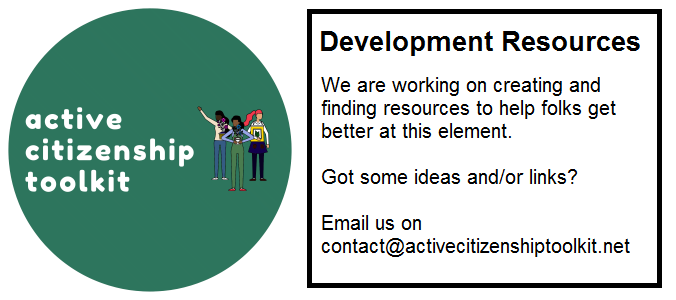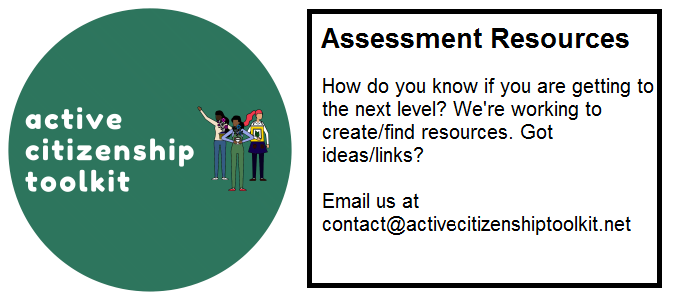Element Descriptor
Academics can, on a good day, be a useful resource for activists. On a good day. But there are cultural, institutional and political constraints on what you can ‘get’ out of a given academic. Not understanding that will lead to frustration allround…Despite what failed academics, swilling the sour grapes, may tell you, every so often academics do come up with useful information or concepts. Being able to sort the wheat from the chaff is useful – saving time, aggravation and morale
Level descriptors
| Novice | Practitioner | Expert | Ninja |
|---|---|---|---|
| You can read straightforward work by someone writing clearly about relevant research for a relatively popular audience. | You can read lengthy and sometimes gobble-de-gooked articles about matters not directly related to Your Struggle and still come out with useful quotes and concepts, amidst the verbal detritus. | You can overview an academic’s various papers and books, seeing how they got that way and figuring out the wheat from the chaff. | You can use an academic’s work – and that of his/her colleagues/bezzies/rivals – to help your group with both tactical and strategic dilemmas (not solve – I mean, this is only academics, after all). |
Element Overview Essay
This is a draft. If something doesn’t make sense, or you see typos, or if you have further ideas, please email us on contact@activecitizenshiptoolkit.net
The causes of this are that most people either are academics who don’t see what they’re like, or the vast, vast majority of people aren’t academics who think “Well, there’s no held the hope of getting sensible words out of these clowns.”
The consequences of not trying to get the best out of academics, when you are doing social movement activity is that you miss out on the one or two or Let’s be generous 5% of academic work that is actually meaningful and insightful and potentially useful. Okay, sometimes as high as 7%. But that’s my final offer.
What is to be done? Well understand pressures on academics and how their cultures insist that they dress up often not very important ideas and turn them into turgid. 7000 word articles.
- Understand that there is a publish or perish pressure. So that a lot of what gets published even after peer review is basically dross.
- Understand that with regards to social movements, there are additional pressures, such as academics being human beings who want to believe that there is some hope and that such and such a grassroots initiative that they are studying will develop the to challenge the trajectory of doom that we are on or that they go native and adopt unreflectively the views and self descriptions of the activists they’re studying. Or they’ve maintained a critical distance on the inside, but writing the truth as they see it would cost them future access to the people they’ve studied. Because activists don’t like to be laughed at, by academics, or having the flaws and delusions, in activist culture and activist activity exposed.
Beyond that, you can build relationships with individual academics or groups of academics, and that might help you get access to some of the good stuff. It might help them in dialogue with you be a bit more critical and detailed.
But ultimately, engaging with academics is always going to be very consuming of your time, your energy and your brainpower because you have to decipher and translate their verbiage. So you’ve got to ask yourself, is the game worth the candle? What is the opportunity cost?
Development Resources

Assessment Resources

